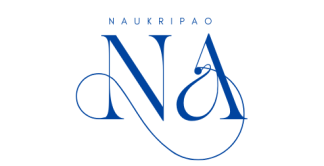
Top 10 Teacher Interview Questions with Answers: A Comprehensive Guide
As an aspiring educator, preparing for a teacher interview is crucial to landing your dream job. This comprehensive guide will walk you through the top 10 teacher interview questions, providing detailed answers and insights to help you succeed.
Whether you’re a new graduate or an experienced teacher looking for a change, mastering these questions will boost your confidence and improve your chances of securing that teaching position.
The Importance of Preparation
Before we dive into the specific questions, it’s essential to understand why thorough preparation is key to acing your teacher interview. Being well-prepared not only demonstrates your commitment to the profession but also showcases your ability to organize and present information effectively – a crucial skill for any teacher.
Self-Introduction in Teacher Interview
One of the first things you’ll likely be asked to do in a teacher interview is to introduce yourself. This is your opportunity to make a strong first impression and set the tone for the rest of the interview.
Tips for a Compelling Self-Introduction
- Keep it concise: Aim for a 2-3 minute introduction.
- Highlight relevant experience: Focus on your teaching background and qualifications.
- Show enthusiasm: Convey your passion for education and working with students.
- Connect to the position: Briefly mention why you’re interested in this particular role.
Sample Self-Introduction
“Good morning. I’m Sarah Johnson, and I’m thrilled to be here today. I’ve always been passionate about education, which led me to pursue a Bachelor’s degree in Elementary Education from State University. For the past three years, I’ve been teaching fourth grade at Sunshine Elementary, where I’ve had the opportunity to develop innovative curriculum and implement technology-driven learning strategies. I’m particularly excited about the possibility of joining your school district because of its commitment to student-centered learning and community engagement, which aligns perfectly with my teaching philosophy.”
Top 10 Teacher Interview Questions and Answers
Now, let’s explore the top 10 questions you’re likely to encounter in a teacher interview, along with strategies for crafting compelling answers.
1. Why do you want to become a teacher?
This question aims to assess your motivation and passion for teaching. Your answer should reflect your genuine interest in education and your desire to make a positive impact on students’ lives.
Sample Answer: “I’ve always been drawn to teaching because of its potential to shape young minds and inspire future generations. My own third-grade teacher, Mrs. Thompson, had a profound impact on my life, showing me the power of education to open doors and create opportunities. I want to be that same source of inspiration and guidance for my students, helping them discover their potential and develop a lifelong love for learning.”
2. What is your teaching philosophy?
Your teaching philosophy is a personal statement that outlines your beliefs about education and your approach to teaching. It should reflect your values and methods as an educator.
Sample Answer: “My teaching philosophy centers on creating a student-centered, inclusive learning environment where every child feels valued and empowered. I believe in using diverse teaching methods to cater to different learning styles and fostering critical thinking skills. I also emphasize the importance of building strong relationships with students and their families to create a supportive learning community. Ultimately, my goal is to instill a love for learning that extends beyond the classroom and prepares students for lifelong success.”
3. How do you handle classroom discipline?
Classroom management is a crucial skill for teachers. Your answer should demonstrate your ability to maintain a positive learning environment while addressing behavioral issues effectively.
Sample Answer: “I believe in establishing clear expectations and consequences from the beginning of the school year. I involve students in creating classroom rules, which helps them take ownership of their behavior. For minor infractions, I use non-verbal cues or quiet reminders to redirect behavior. For more serious issues, I employ a progressive discipline approach, starting with a private conversation with the student to understand the root cause of the behavior. I also believe in positive reinforcement, regularly acknowledging and rewarding good behavior to encourage its continuation.”
4. How do you differentiate instruction for diverse learners?
This question assesses your ability to adapt your teaching methods to meet the needs of students with varying abilities and learning styles.
Sample Answer: “Differentiation is key to ensuring all students can access the curriculum and succeed. I start by assessing each student’s learning style, strengths, and areas for improvement. Then, I use a variety of strategies to differentiate instruction. This might include:
- Offering tiered assignments with varying levels of complexity
- Using flexible grouping for collaborative work
- Providing choice in how students demonstrate their learning
- Incorporating visual, auditory, and kinesthetic elements into lessons
- Using technology to offer personalized learning experiences
I also regularly assess student progress and adjust my approach as needed to ensure all students are challenged and supported appropriately.”
5. How do you incorporate technology into your teaching?
In today’s digital age, technology integration is increasingly important in education. Your answer should showcase your familiarity with educational technology and how you use it to enhance learning.
Sample Answer: “I view technology as a powerful tool to enhance engagement and facilitate personalized learning. I regularly use interactive whiteboards for collaborative activities and to make abstract concepts more visual. I also incorporate educational apps and online platforms for practice and assessment, which allows me to track student progress more efficiently.
Additionally, I use technology to create flipped classroom experiences, where students watch instructional videos at home and use class time for hands-on application and discussion. However, I’m always mindful to balance technology use with traditional teaching methods to ensure a well-rounded learning experience.”
6. How do you communicate with parents?
Effective parent communication is crucial for student success. Your answer should demonstrate your commitment to keeping parents informed and involved in their child’s education.
Sample Answer: “I believe in maintaining open and regular communication with parents. At the beginning of the year, I send home a welcome letter outlining my communication methods and expectations. I use a combination of weekly newsletters, email updates, and a class website to keep parents informed about classroom activities and upcoming events.
For individual student matters, I prefer direct communication through phone calls or face-to-face meetings. I also host parent-teacher conferences twice a year and am always available for additional meetings if needed. My goal is to create a partnership with parents to support their child’s learning journey.”
7. How do you assess student learning?
This question evaluates your approach to measuring student progress and using data to inform your teaching.
Sample Answer: “I believe in using a variety of assessment methods to get a comprehensive picture of student learning. This includes:
- Formative assessments like exit tickets, quick quizzes, and observation checklists to gauge daily understanding
- Summative assessments such as unit tests and projects to measure mastery of key concepts
- Performance-based assessments that allow students to demonstrate their learning in authentic ways
- Self-assessments to encourage students to reflect on their own progress
I use the data from these assessments to identify areas where students need additional support or enrichment and to adjust my teaching strategies accordingly. I also believe in providing timely and constructive feedback to help students understand their strengths and areas for improvement.”
8. How do you handle stress and maintain work-life balance?
Teaching can be a demanding profession, and this question assesses your ability to manage stress and avoid burnout.
Sample Answer: “Maintaining a healthy work-life balance is crucial for being an effective teacher. I prioritize tasks and use time management strategies to ensure I’m using my time efficiently at school. I set boundaries for work hours and make sure to dedicate time for self-care activities like exercise and hobbies.
I also believe in the power of collaboration and don’t hesitate to ask for help or advice from colleagues when needed. Additionally, I practice mindfulness techniques to manage stress and stay focused. By taking care of myself, I ensure I can bring my best self to the classroom each day.”
9. How do you stay current with educational trends and best practices?
This question evaluates your commitment to professional growth and continuous learning.
Sample Answer: “I’m passionate about staying up-to-date with the latest educational research and best practices. I regularly attend professional development workshops and conferences, both in-person and online. I’m an active member of several professional teaching organizations and participate in their webinars and discussion forums.
I also subscribe to educational journals and blogs to stay informed about current trends. Additionally, I believe in the power of peer learning, so I participate in a professional learning community at my school where we share ideas and strategies. Lastly, I reflect on my own teaching practices regularly and seek feedback from colleagues and administrators to continually improve my craft.”
10. Why should we hire you?
This question gives you the opportunity to summarize your strengths and make a compelling case for why you’re the best candidate for the position.
Sample Answer: “I believe I would be an excellent addition to your teaching team for several reasons. First, my passion for education and dedication to student success aligns perfectly with your school’s mission. My experience in implementing innovative teaching strategies and integrating technology effectively will contribute to creating engaging learning experiences for students.
Additionally, my strong communication skills and commitment to parent involvement will help foster a supportive learning community. I’m also a team player who thrives on collaboration and is always eager to learn from colleagues. Lastly, my adaptability and willingness to go above and beyond to meet student needs make me well-suited to handle the challenges of today’s diverse classrooms. I’m excited about the opportunity to bring my skills, enthusiasm, and fresh ideas to your school and make a positive impact on your students’ lives.”
Conclusion
Preparing for a teacher interview can be daunting, but with thorough preparation and practice, you can approach it with confidence. Remember, the key to success lies not just in memorizing answers, but in reflecting on your experiences and articulating your passion for education.
By mastering these top 10 teacher interview questions and crafting thoughtful, genuine responses, you’ll be well-equipped to showcase your strengths and land your dream teaching position.
As you prepare for your interview, keep in mind that the interviewer is not just looking for someone who can answer questions correctly, but for a dedicated educator who will positively impact students’ lives. Let your passion for teaching shine through in your answers, and don’t be afraid to share specific examples from your experiences that demonstrate your skills and commitment to education.
Good luck with your teacher interview!
